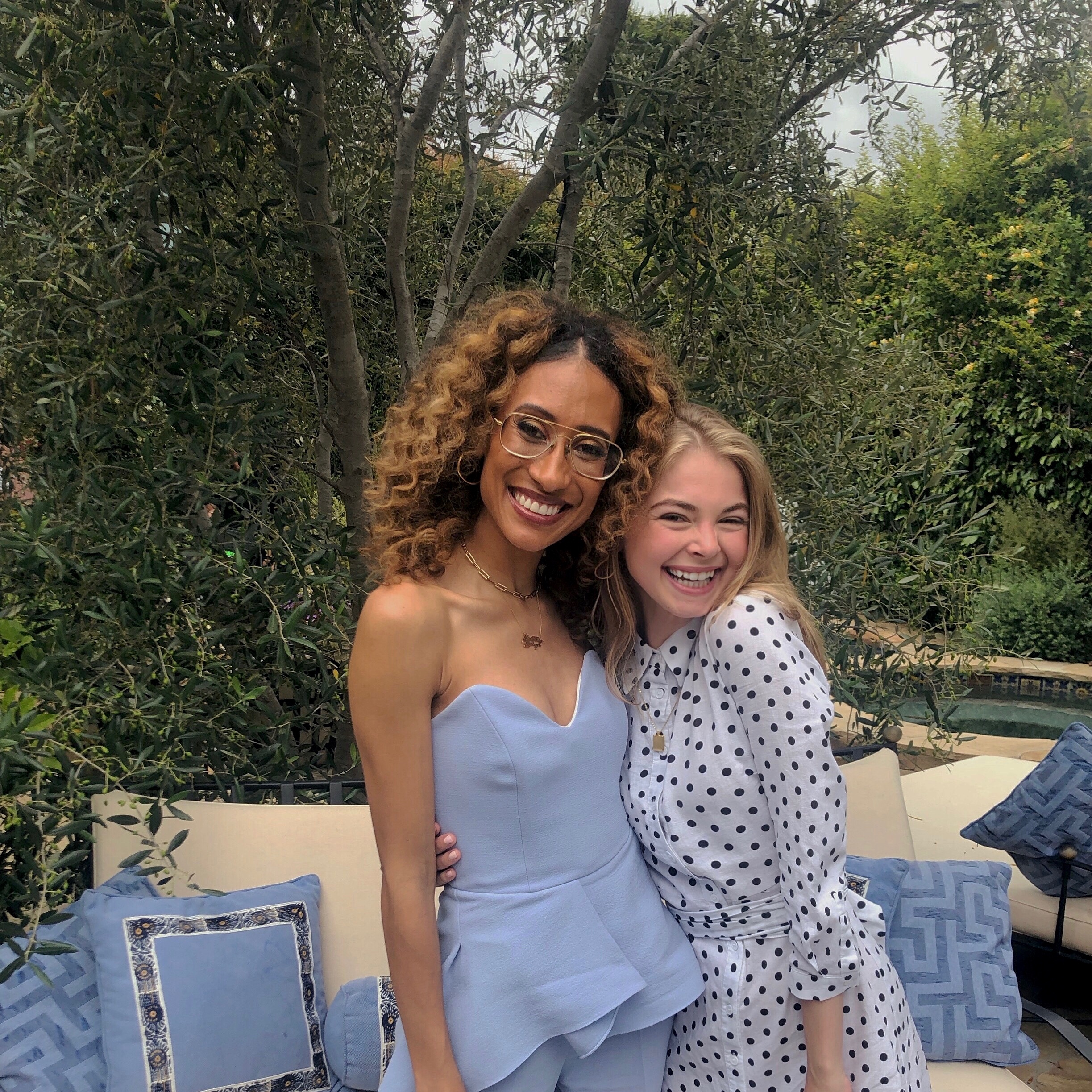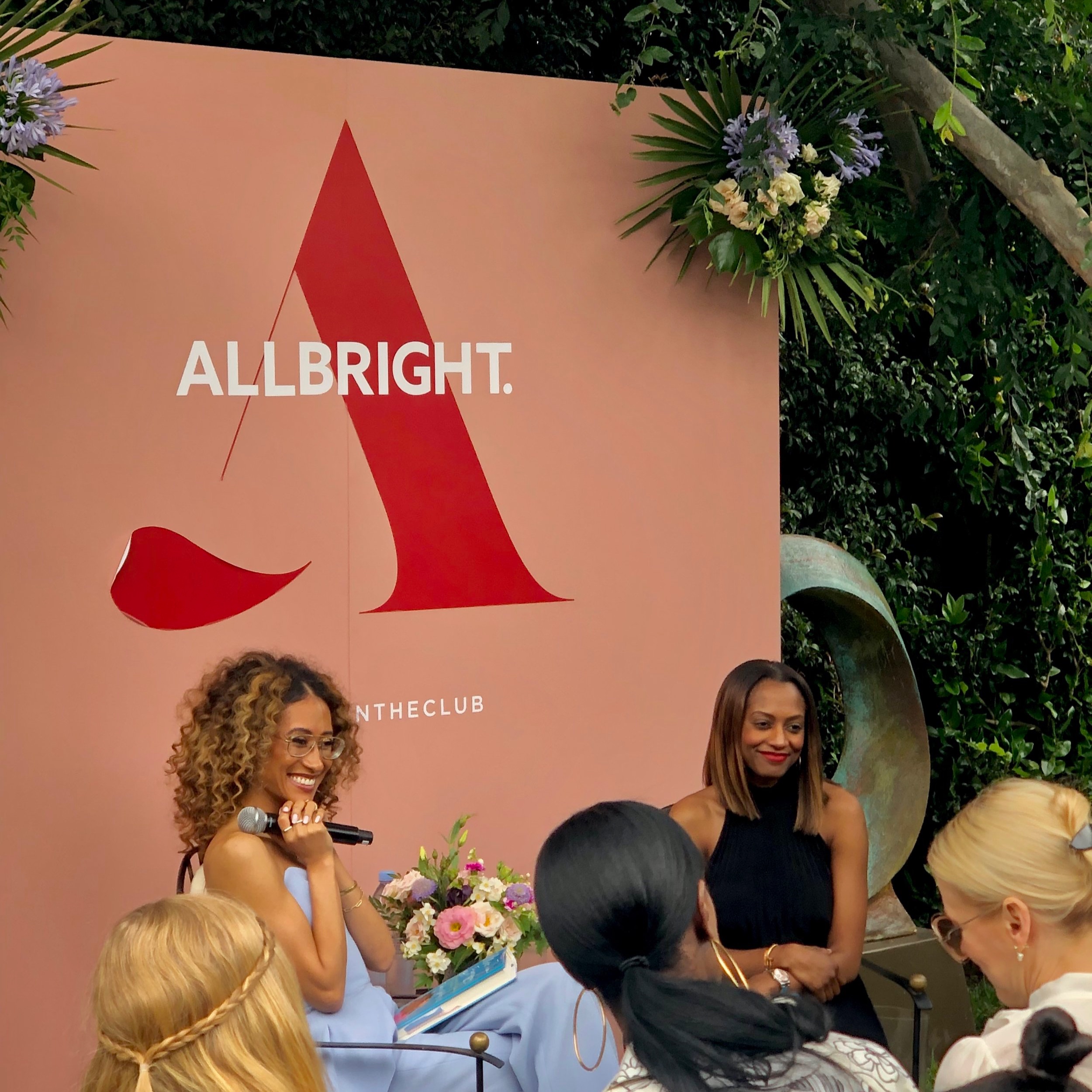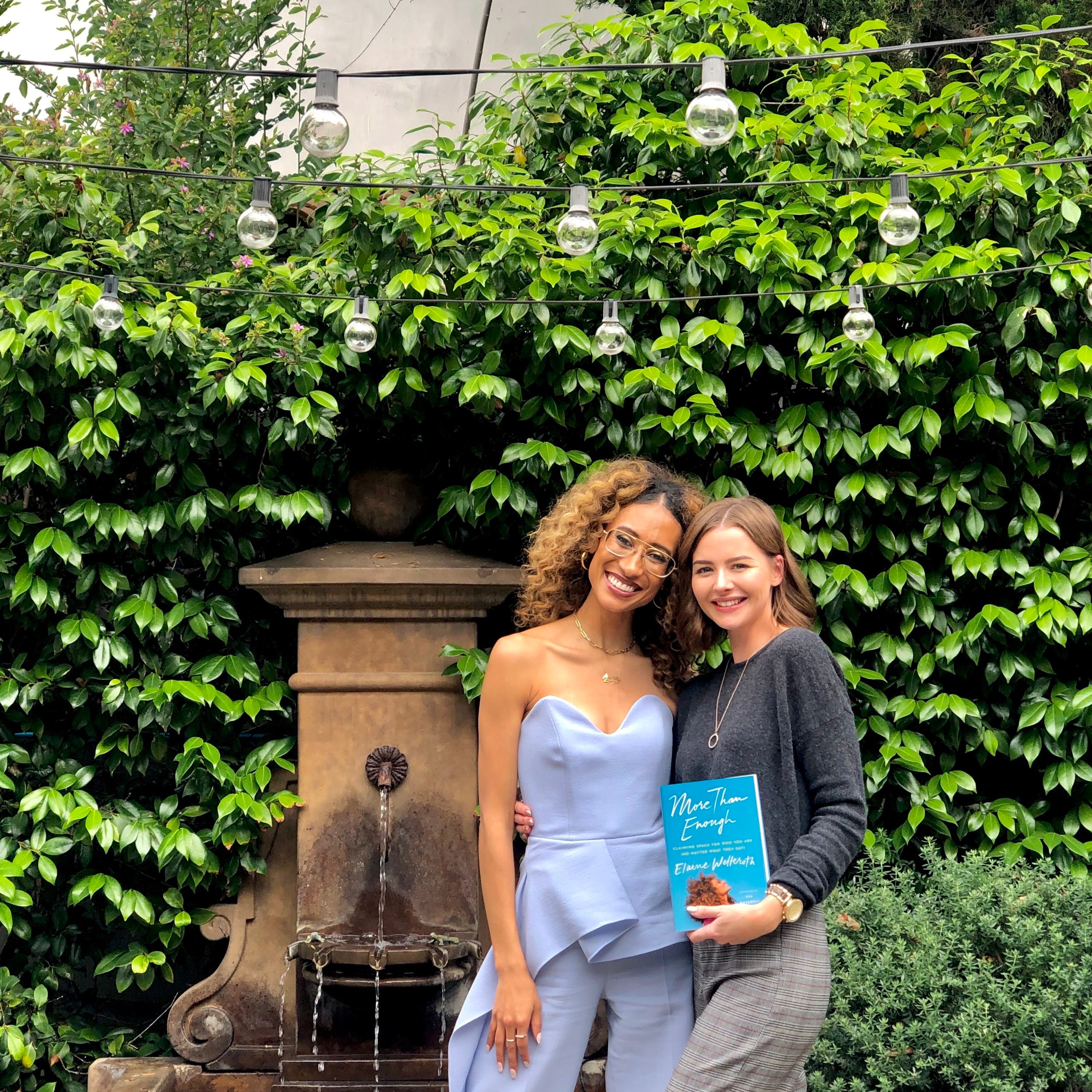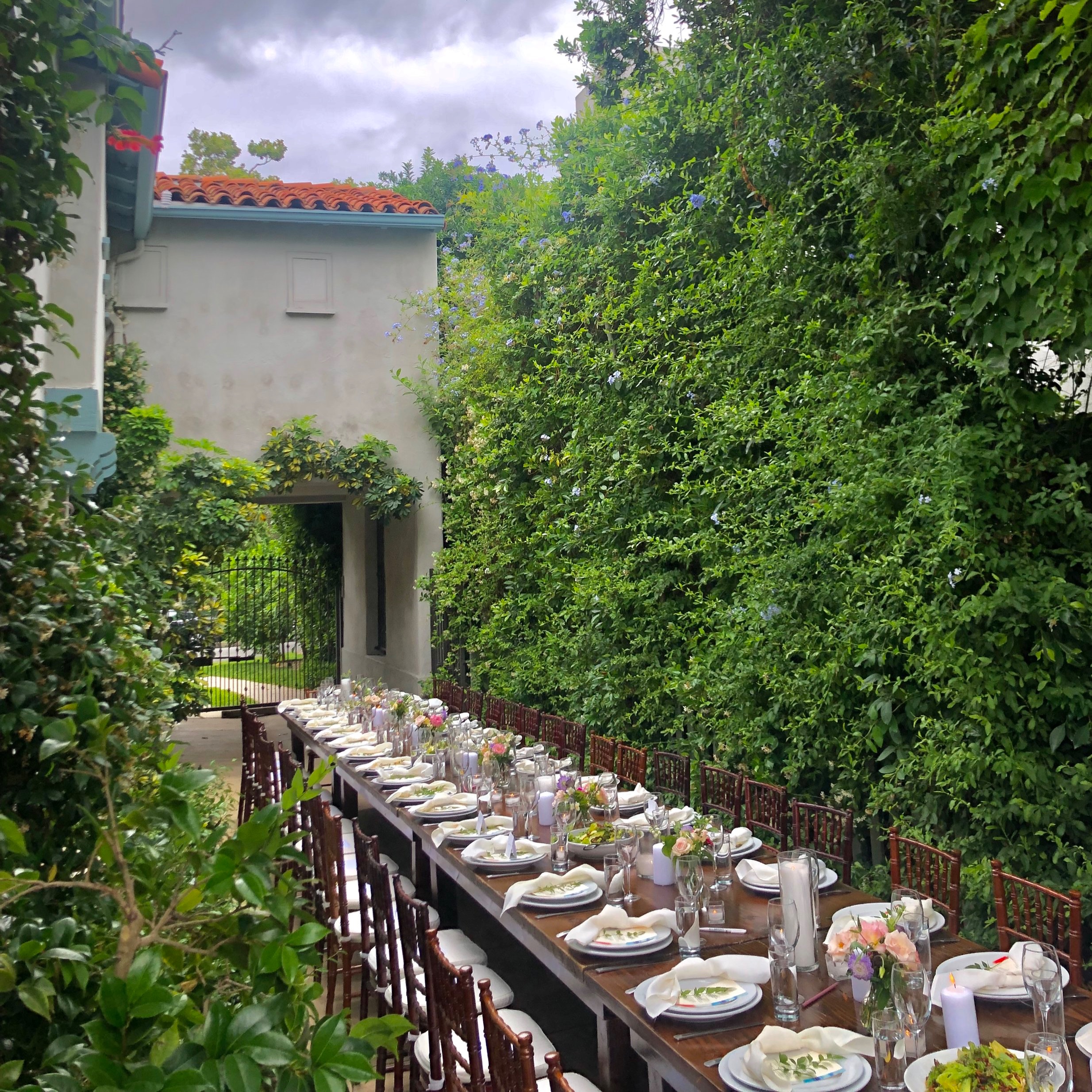They say anxiety can be mistaken for excitement. Or at least, that’s what my mom would tell me to ease my pre-interview jitters during my post-grad job search. You know the pit in your stomach that churns up until you are faced with something you are terrified to fail at? It’s quite a unique feeling. For me, I felt those jitters before every job interview—where I would be asked about my capabilities and qualifications for a position that I wholeheartedly thought would be my future. It was a change in pace when I felt those same jitters on the day I was going to interview someone in return.
My whole life I wanted to be a journalist. For as long as I can remember, I felt that writing was far more than an academic endeavor. Rather, it was something I was passionate about and wanted to pursue professionally. Fast forward to the present day, I was fortunate enough to land on my feet at Create & Cultivate as the editorial assistant under editorial director Sacha Strebe—a seasoned editor and writing guru. And within my first two weeks, I set off on my first big project. I was invited to an event hosted by All Bright—a membership community that was created for women by women to network, collaborate, and support one another.
On that summer afternoon, we gathered for an intimate paneled discussion and backyard lunch celebration for former Teen Vogue editor-in-chief, Elaine Welteroth, to unveil her new book More Than Enough. Spending that time “cheersing” to her accomplishments meant more to me than anything else I could really pinpoint at that moment. Welteroth has been a constant inspiration to me and my career path. So, I was nothing short of ecstatic to learn that I would be meeting her in person. Prior to the event, I mustered up the courage to ask for quality time with Welteroth to interview her and pinched myself when I was given the go ahead.
For those not familiar with Welteroth or her groundbreaking, culture-shaking milestones: she is 32 and practically at the top of Mount Everest (although she told me in our chat, she’s “still grinding”). Welteroth brought social and political context to a magazine that historically focused on surface level topics and teenage whimsy. She took a stab at reinventing an entire publication and was more than successful in doing so. She reframed conversations to educate not only the younger female generation of readers but caught the attention of adults, too. She redirected young women to a vehicle of truth and strayed from diluted content. She provided her audience with an empowered, female voice from a person who actually looked like them and consciously fought for them. Her intentions were fierce and strategic all at the same time.
Welteroth has broken a multitude of societal molds. She was the youngest person appointed editor-in-chief in Condé Nast history and the first African American ever to hold the post of beauty and health director at a Condé Nast publication. After making history at Teen Vogue and sparking an incredible social movement during her tenure, Weletroth made the decision to leave her role and continue her plight in bridging the gap—thus crafting her memoir. She summed it up here at the event when she said: “there is an audience for this book and they need the book now.” I couldn’t agree more.
After we clinked our champagne flutes and lunch wrapped up, I picked Welteroth’s brain about her career mantra, being the youngest at the table, and how social media has affected her mission. Follow along for some insight into the world that is Elaine Welteroth’s.
Natalie Engel: At Create & Cultivate, our mission is to empower women to create and cultivate the career of their dreams. I want to know, what is your mantra in regards to your career?
Elaine Welteroth: It’s interesting. When I was in my 20s, I remember thinking and saying all the time, bite off more than you can chew and chew as fast as you can. That was my mantra. Then I hit a burnout phase of my career and realized I needed to rethink the way I approach my work. I needed to reexamine the way I was showing up in this hustle culture that we live in. I heard another quote from someone that stuck with me and it was this wonderful educator and writer-activist Eve Ewing. She said, “there is no glory in a grind that grinds you all the way down.”
That really just stuck with me. Obviously, I’m still grinding. We’re all still hustling. But I think the thing is to make sure that you’re in alignment with and you’re hustling for work that is fulfilling and that work is energizing and not depleting. We still need to create boundaries around our work lives and our personal lives. I’m still finding that balance. I think balance is elusive. I don’t know if there’s a true destination where you can experience true balance but I do think I’m more diligent about creating boundaries now than I have ever been and 30will do that to you. I hear children will do that to you. I’m not there yet but will report back. Although my book feels like a baby, I will say that.
NE: That’s awesome. What advice can you give to somebody who’d like a seat at the table but feels like they are not prepared yet?
EW: Well actually, age has been something that has been a little bit of a challenge for me to grapple with overtime. I’ve often been the youngest person to be in my position. I’ve also been responsible for a team who are reporting to me, who are older than me and that’s never easy. Actually, for all of my 20s, I never told anyone my age. I protected my age fiercely because as women, ageism works both ways. You can easily be undermined and undervalued if you are perceived as too young for a leadership role and that’s definitely something I’ve confronted throughout my career.
So I understand that sort of anxiety or insecurity around being too young to have a seat at the table and to have a voice in the conversations, and it’s something I’ve definitely battled with over time. But what I think I’ve come to realize is that the most transformative work that I have been able to do in my career came from those things that made me feel like an outsider or feel less than, you know. Being the youngest, being the only black woman in the room often, and being a woman has actually equipped me to do the exact kind of work that I’m meant to do in the world. So, it’s been about leaning into those things that can cause anxiety or insecurity and recognizing that they’re actually your superpowers and trying to remember that, remember that you are actually there speaking on behalf of entire communities that maybe don’t have a voice at the table. I think that helps empower me whenever I feel isolated or alone I just think of all the people that I’m there speaking on behalf of and it’s empowering.
NE: Completely. I think it goes back to what you were saying about the highlight reel [on Instagram]. You are young and have accomplished so much which makes it seem like you haven’t had any missteps or you haven’t seen too many obstacles. So, from an outsider’s perspective, it’s like ‘oh, she has it down.’
EW: Yes. That’s why I wrote this book. There are so many universal aspects to this “success story” that we never talk about. I’m hoping this book is an invitation for women to come to the table and crack open a hard conversation around success—striving for life and work goals. It’s never what it looks like on Instagram. We are scrolling and comparing ourselves and I just think that I have a responsibility to tell more of the truth to this next generation coming up.
It’s the same sort of mission that you guys have at Create & Cultivate. It’s bringing women together to have real conversations so we can support each other, in real time. Not when we’re fifty and looking back at our lives and then telling the truth about all of that. Let’s do it now. This is the generation of new role models of women in business and in leadership roles. We’re rewriting the rules every day. We’re kind of creating our own playbook. We need to be sharing our tools and our experiences with each other so that we’re better preparing the next generation. That’s my purpose... that’s the goal behind writing this book and starting this conversation.
NE: How do you feel social media has affected your voice and your mission?
EW: It’s interesting. I don’t think I would have had some of the opportunities I’ve had if social media hadn’t come along. [Social media] has kind of broken down some of the old rules around there being a handful of gatekeepers that decide who gets to share information. I feel really grateful to be a part of this social media generation. There’s a proliferation of new voices who are carving out their own communities and ways to connect with each other. I think the old ways of being validated by a corporate structure or by a handful of gatekeepers is kind of a thing of the past.
So, I know that [social media] helped me find my voice in an industry where I often felt really intimidated. I was often the youngest and the only brown girl. Sometimes it was hard for me in real life to be in social environments and networking. I always hated those environments. But I found social media as a great outlet to really express who I am, what I care about, and causes that matter to me. I think through that, I was somehow able to find and bring my voice into the work that I was doing. So, it was actually a tool that I found to be really empowering.
It’s safe to say I left this conversation with goosebumps and a reinvigorated sense of empowerment. To get Welteroths’s full story, be sure to snag a copy of her book. Got the feels, too? Continue the conversation in the comments below on what makes you more than enough.





